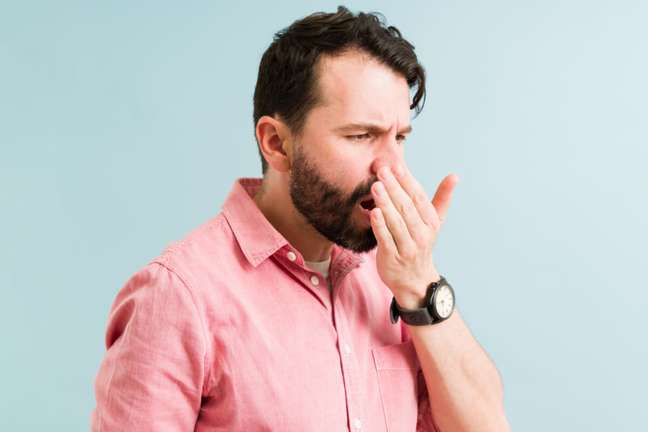The expert clarifies the myth about the problem and explains what really causes bad breath
The person with halitosis may not notice it, creating embarrassing situations that can negatively affect personal relationships, professional activities and generate marital problems. The main myth related to the causes of bad breath is, without a doubt, “bad breath comes from the stomach”. However, studies state that stomach bad breath is extremely rare or never comes from the stomach. “Almost all causes of halitosis are found in the patient’s mouth,” comments dentist surgeon and halitosis specialist Dr. Bruna Condé.

interference of the muscle ring
When someone has bad breath when talking or breathing, it becomes even clearer that the problem isn’t coming from the stomach, because when we talk and breathe, the air comes from the lungs. Furthermore, betweenstomach and in the esophagus there is a ring-shaped muscle, which prevents the contents of the stomach from returning to the mouth.
Difference between belching, hiatal hernia and bad breath
Air comes from the stomach only when we have a gastric belching, known as a “burp”. In this situation, air escapes from the stomach into the esophagus, which is normally closed when we are not eating. Even so, belching has an acidic odor, lasts a few seconds, and differs from the characteristic odor of bad breath, which is sulfur, or the odor caused by fasting or hypoglycemia (ketone breath that can smell of acetone or of spoiled apple). .
The same occurs in the case of a hiatal hernia or gastroesophageal reflux. In this case, the ring muscle does not properly close the passage from the esophagus to the stomach. When stomach contents eventually return to the mouth, their smell is too acidas in belching, very different from the characteristic odor of halitosis, and lasts a few seconds, unlike the odor of halitosis, which can persist for much longer periods or even be constant.
The oral cavity is the main source of bad breath
As explained by Dr. Bruna Conde, the oral cavity is responsible for 90% of cases of halitosis, the respiratory tract is responsible for 8%, the gastrointestinal tract and other causes are responsible for only 2%. Since the mouth is the main source of halitosis, a specialized investigation of the oral cavity is essential.
This is because, as the specialist points out, on the back of the tongue there are small crypts, which are the spaces between the papillae, which provide ideal conditions for large numbers of bacteria to settle easily. Remnants of desquamated cells from the epithelium of the tongue and food residues also accumulate there.

Causes of halitosis
Bad breath can be caused by bacterial plaques, poor preservation of teeth and dental restorations, gingivitis, poor oral hygiene. Additionally, fermentation of food and cell debris by bacteria promotes volatile substances that smell bad, causing bad breath. This situation is called tongue lining, popularly known as white or whitish tongue, and this also happens with food being held between the teeth.
“When the practitioner does not evaluate every part of the mouth, some important information can be lost. coating of the tongue and / or of poor qualityor salivary quantity may not be evaluated and are a major cause of chronic bad breath, “explains the dentist.
Consult an expert
According to Dr. Bruna Conde, having a consultation with a specialized professional is essential to avoid more serious problems. “Do not hesitate to seek professional and specialized help on the subject, halitosis is a problem that if not treated can cause various complications for general health, behavior and relationships”, concludes the specialist.
by Gabriela Dallo
+The best content in your email for free. Choose your favorite Earth Newsletter. Click here!
Source: Terra
Benjamin Smith is a fashion journalist and author at Gossipify, known for his coverage of the latest fashion trends and industry insights. He writes about clothing, shoes, accessories, and runway shows, providing in-depth analysis and unique perspectives. He’s respected for his ability to spot emerging designers and trends, and for providing practical fashion advice to readers.







![It All Begins Here: What’s in store for Monday, November 3, 2025 Episode 1298 [SPOILERS] It All Begins Here: What’s in store for Monday, November 3, 2025 Episode 1298 [SPOILERS]](https://fr.web.img5.acsta.net/img/53/20/5320f497ef6fe01dea848138ba5e575e.jpg)
